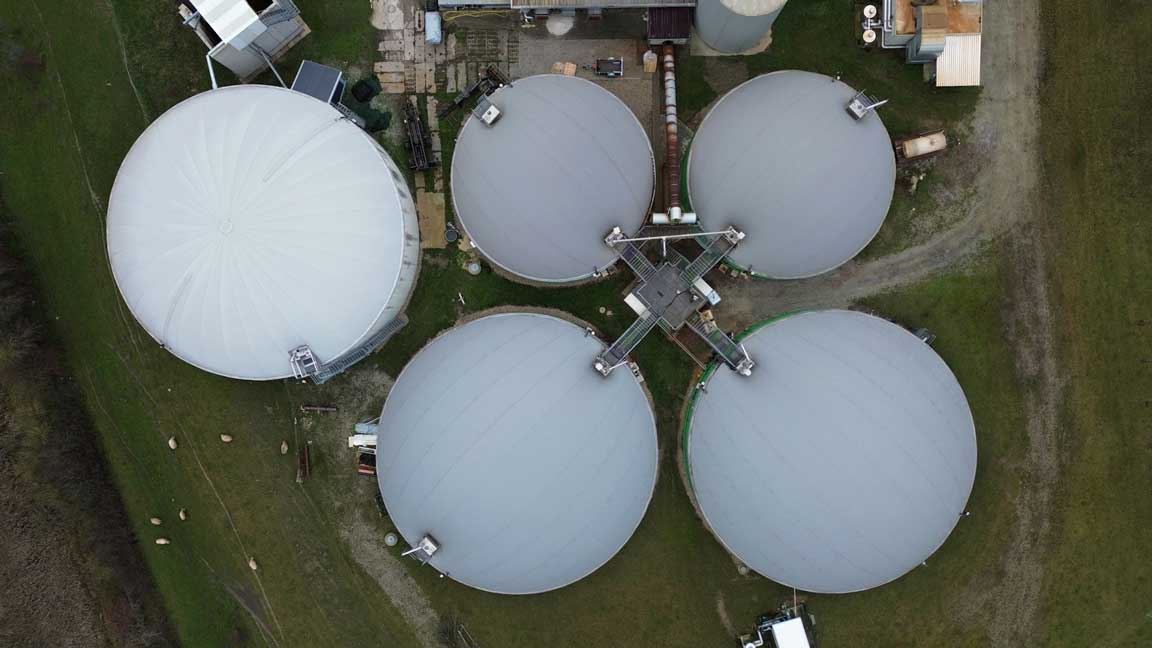Amidst the growing concerns over climate change and the depletion of fossil fuels, biogas has emerged as a beacon of hope, offering a sustainable solution for the dual challenges of energy production and waste management. Biogas, a renewable and versatile biofuel, is produced through the anaerobic digestion of organic matter, such as agricultural waste, animal manure, and food scraps. This process not only harnesses the energy potential of these waste materials but also diverts them from landfills, mitigating methane emissions, a potent greenhouse gas (IPCC, 2021).
Biogas, primarily composed of methane and carbon dioxide, holds immense potential as a renewable energy source. Its versatility allows it to be utilized for various applications, including electricity generation, heat production, and transportation fuel (Zhang et al., 2017). Biogas-powered power plants can generate clean electricity, reducing reliance on fossil fuels and their associated environmental impacts (Blanco-Redondo et al., 2020). Biogas can also be used for heating homes and businesses, replacing conventional fossil fuels and promoting energy efficiency. Furthermore, biogas can be purified to produce biomethane, a clean and renewable alternative to natural gas for transportation purposes, reducing greenhouse gas emissions from the transportation sector (European Commission, 2021).
Despite its promising potential, biogas faces certain challenges in terms of commercialization. One key challenge lies in the need for more efficient biogas production technologies. Current biogas production methods can be relatively slow and require significant capital investment (Singh et al., 2022). Additionally, the lack of a large-scale market for biogas hinders its widespread adoption. Expanding the market for biogas-derived products, such as biomethane and bioelectricity, is crucial for driving the growth of the biogas industry (IEA, 2023).
Despite these challenges, biogas holds immense promise as a sustainable solution for the future. Its ability to generate clean energy, reduce waste disposal, and mitigate greenhouse gas emissions makes it a valuable tool in the transition towards a more sustainable and environmentally friendly society. With continued research and development, biogas is poised to play a significant role in addressing the world’s energy and environmental challenges.
References:
Blanco-Redondo, R., Romero-Mero, L., & Jiménez-Morán, A. (2020). Biogas production from agricultural waste and crop residues. In Handbook of Bioenergy (pp. 1-33). Springer, Cham.
European Commission. (2021). Renewable energy directive (EU) 2018/2001. Official Journal of the European Union, L 343, 252-329.
IEA. (2023). Biogas: A key renewable energy source for a sustainable future. International Energy Agency.
IPCC. (2021). Climate Change 2021: The Physical Science Basis. Contribution of Working Group I to the Sixth Assessment Report of the Intergovernmental Panel on Climate Change.
Singh, A., Kumar, S., Gupta, S. K., Deswal, S., & Saini, J. K. (2022). Current status and future prospects of biogas production from organic waste: A review. Renewable and Sustainable Energy Reviews, 164, 113126.
Zhang, C., Su, H., Tan, S., & Fang, C. (2017). Biogas upgrading to biomethane: A review. Chemical Reviews, 117(21), 10674-11022.

